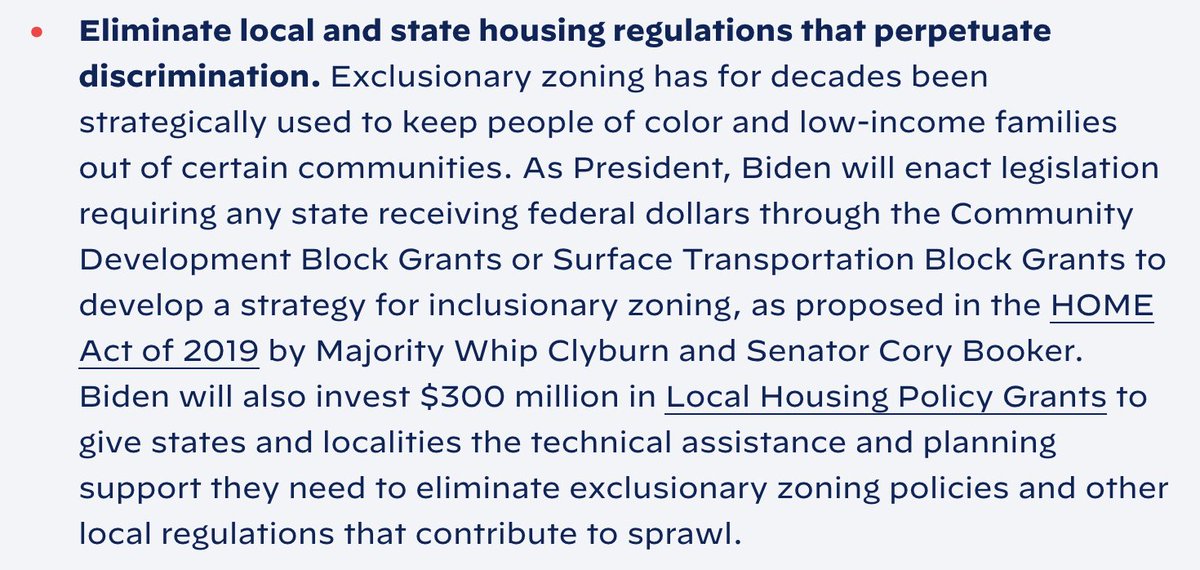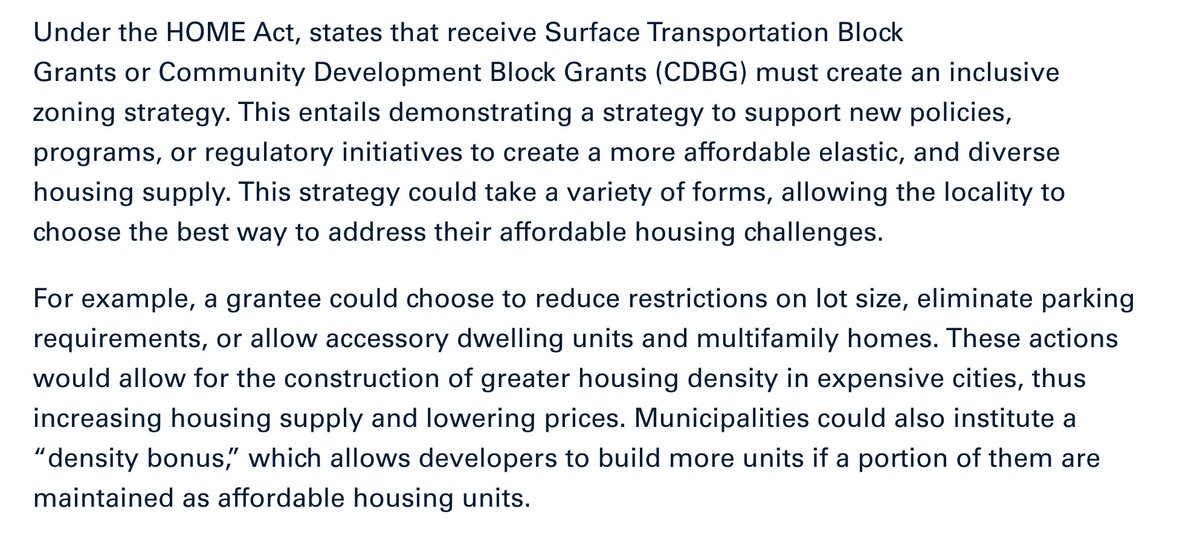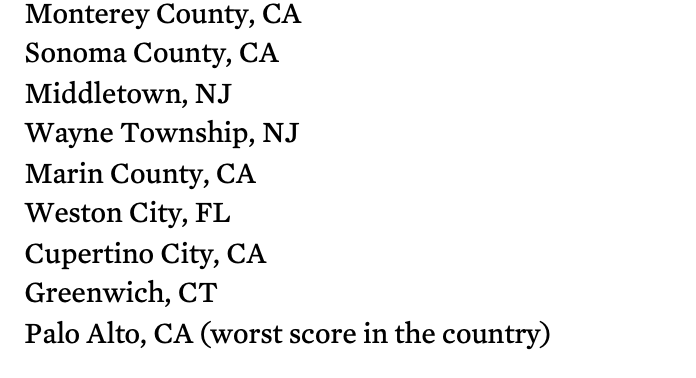Alright, no more malarkey, it's time to dust off the Biden housing plan https://joebiden.com/housing/#
The plan calls for expanding Section 8 vouchers. Right now only about one in four households that qualifies for vouchers get them. Like many housing policy people, I think making vouchers an income-based entitlement is a good idea.
BUT it's crucial to remember that expanding vouchers will put fuel on the fire of affordability problems for the households that earn too much to get vouchers but still struggle with housing costs in supply constrained cities.
Section 8 expansion should be paired with zoning deregulation to minimize this effect. The Biden plan recommends passing the Booker and Clyburn HOME Act to incentivize localities that receive CDBG and surface transportation grants to reform zoning.
Side note--the Biden plan seems to refer to any reform to exclusionary zoning as "inclusionary zoning." This is confusing bordering on incorrect since IZ has a specific meaning and makes me think there isn't a land use expert involved with the plan: https://joebiden.com/housing/#
The Booker/Clyburn bill has lots of good ideas: https://www.booker.senate.gov/news/press/booker-clyburn-take-innovative-two-pronged-approach-to-tackling-affordable-housing-crisis
But it could be designed to be more effective. Under the Booker/Clyburn proposal, grantees can keep getting their federal money as long as they pass basically any reform that appears to be land use liberalization.
There are plenty of reforms that appear to make it feasible to build more housing but don’t. For example, DC "legalized ADUs" in a way that seems to have made them to be harder to build than they were before. https://twitter.com/ebwhamilton/status/1266034845869842434?s=20
Localities could adopt inclusionary zoning policies that make it infeasible to build new multifamily housing. It's just not going to be hard for grantees to pass rules that they say comply with the HOME Act without actually improving conditions for new housing construction.
Rather than relying on exclusionary localities to make good faith reforms in order to keep getting their grants, federal incentives to reform local zoning and entitlement processes would be more effective if they focus on housing market outcomes (prices and new construction).
Localities where housing is particularly expensive should be required to show that they're allowing lots of housing to be built in order to get funds from a program intended to incentivize housing affordability and housing construction.
In this public interest comment, @salimfurth, Ed Pinto, Tobias Peter and I developed a formula that would identify the worst offenders—jurisdictions where housing is very expensive and local policies are standing in the way of new housing construction. https://www.mercatus.org/publications/urban-economics/hud-can-use-housing-market-data-inform-fair-housing-accountability
These are the jurisdictions that ranked worst in our formula, and I think these jurisdictions (and some of their peers also close to the bottom of the list) that should be cut off from some federal funding unless they reform:
In addition to cutting off funds, a president and HUD secretary who are serious about housing affordability should be naming and shaming exclusionary localities.
A Democrat in the White House calling out the places that are obstructing fair housing with their land use regulations has a chance to effectively create pressure for reform.
Beyond changing the metric used to determine which localities are targeted by something like the HOME Act, I’d create a new funding source that’s used as a federal stick/carrot to encourage reform.
Unlike CDBG or the Surface Transportation Block Grants, a grant program to encourage local zoning reform should go specifically to the localities that implement zoning ordinances and issue building permits.
The Warren housing bill would create a new grant program to encourage local land use reform, and yet it would go to CDBG grantees, which excludes lots of localities that do land use planning and permitting. https://www.warren.senate.gov/newsroom/press-releases/warren-and-colleagues-reintroduce-historic-legislation-to-confront-americas-housing-crisis
An effective program should be structured as a "race to the top" that rewards localities based on how much they do to allow more, lower-cost housing to be built.
So, expand Section 8, but don’t forget that this makes it EVEN MORE important for localities to reform their zoning rules and entitlement processes. Fin.

 Read on Twitter
Read on Twitter




